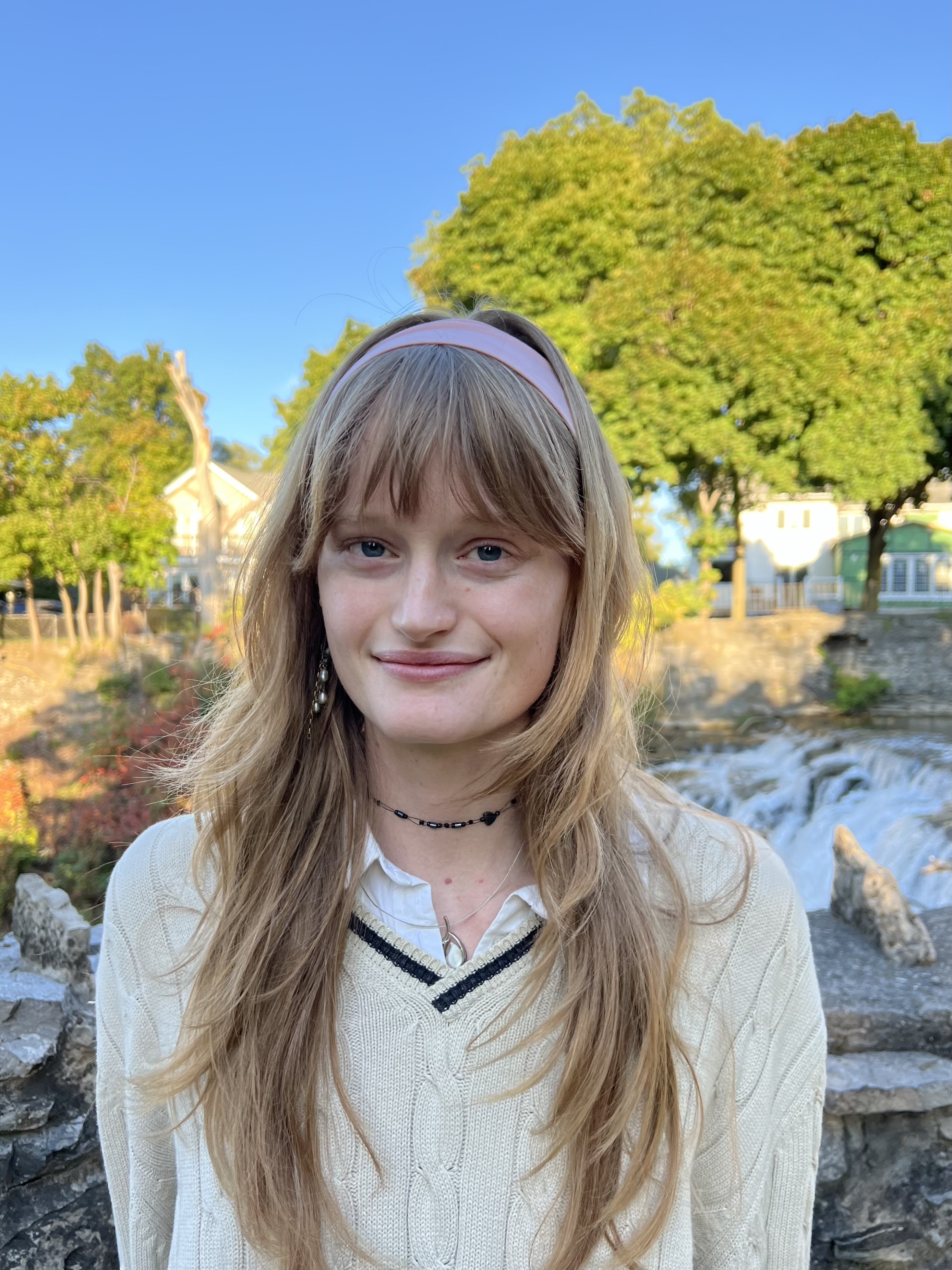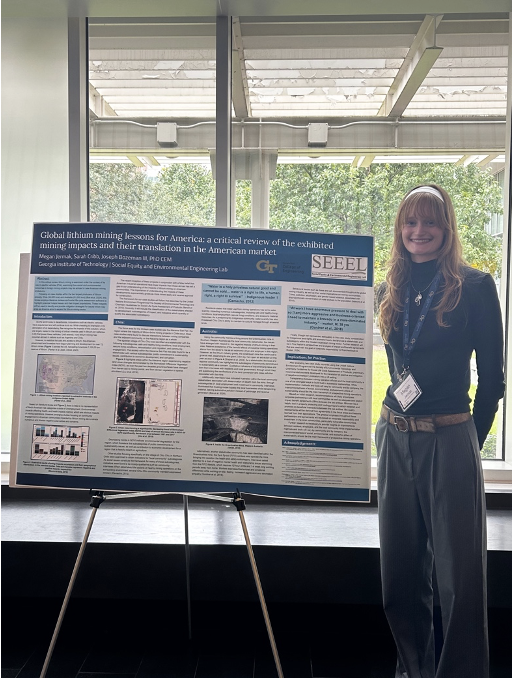Megan Jermak is a 4th-year Civil Engineering major studying the socio-ecological impacts of electric vehicles along their supply chain with Dr. Joe Bozeman III.

How long have you been an undergraduate researcher at Georgia Tech?
I have been involved in research at Georgia Tech for almost three years. I started research with the Center for Sustainable Communities Research and Education (ScORE) in 2022, and I transitioned to working in the Social Equity and Environmental Engineering Lab (SEEEL) in June of 2024
How did you get involved with undergraduate research?
Coming into Georgia Tech as a first year, I was eager to explore the opportunities available and see where my interests lied among them. This led me to the Building for Equity and Sustainability VIP, which challenged me to think about sustainability through new lenses of equity and asset-based community development (ABCD). I was instantly fascinated by the interdisciplinary and systematic nature of this field. This experience connected me with research fellowship at ScORE exploring community engagement in engineering coursework at Georgia Tech, from which I was introduced to Dr. Bozeman, SEEEL, and the field of Industrial Ecology.
From the moment I heard about the lab, I knew that it provided a harmonious mix of engineering, sustainability, and consideration of human systems, which I believe lies at the core of complex issues. Eager to return to research after a semester exchange in Sydney, I reached out to Dr. Bozeman, and to my delight, he welcomed me onto the team.

What are you working on?
When I started at the lab over the summer, I was doing general research on an emerging method of Life Cycle Analysis (LCA) – Social Lifecycle Analysis (S-LCA). This method, almost entirely new to researchers in the United States, highlights, measures, and weighs for comparison impacts felt my human stakeholder groups (ranging from the local community, workforce, and broader society) along the supply chain of a product.
As the summer progressed and my synergy with the lab and research became apparent, Dr. Bozeman introduced me to some of the lab’s long-term goals, largely related to electric vehicle conversion. Accordingly, I tailored my current independent research and thesis – a social life cycle assessment of nascent lithium mining projects in the US, based on observed impacts from established mining endeavors in the Lithium Triangle of South America (Chile, Argentina, and Bolivia). In understanding the systematic impacts associated with lithium mining, this research can inform policy and development surrounding the burgeoning field, and it can provide a basis for future research advocating for alternative transportation futures. Additionally, given that S-LCA is underutilized in the US to date, it will inform how the tool is used in the context of the US market.
Funding for my research has been provided through a seed-grant, under which I am working with Dr. Bozeman and ScORE to explore synergies and disconnects between historically underserved, marginalized communities and the budding industrial recycling industry. In coalescing key community-based organizations, academic, and industry partners in the EV battery and recycling fields, we hope to foster an equitable lithium recycling hub in the southeast US.
What is your favorite thing about research/researching?
Besides my deep interest in the topics of study, my favorite thing about research is its complexity. I enjoy the depth of thought my work provokes and the rigor associated with connecting and understanding the systems being studied. While it can be exhausting to consistently assess and reassess data based on ever-evolving lenses and contexts, nothing compares from the joy of piecing together and comprehending an intricate web of systems at play.
That being said, my enjoyment of these connections is amplified through sharing my work. I believe the work performed by myself and others in SEEEL is highly impactful on the lives of every American. Accordingly, dissemination magnifies the value of the work, such that people, companies, and government alike can make informed decisions about their consumption and investment given the present dangers of the product or advancement.
What are your future plans and how has research influenced them?
Research has entirely revolutionized how I view my plans for the future. Before I entered the research space, I was unsure of how I could fit my passion for sustainability and innovation into my career or what that could even look like. However, through valuable mentorship and experiences at Tech, I have realized that research allows me to not only follow my interests but generate meaningful impacts while doing so.
My long-term goal is to advance research related to how industry, infrastructure, and technology can positively and negatively impact our world and people who populate it, in a manner which allows people to feel heard and invested in their green future. Following my graduation, I intend to pursue a PhD in Civil Engineering or a joint PhD in Civil Engineering and Public Policy, so I can continue my research in a manner that sustains my technical background and contextualizes technology within social science, generating effective work rooted in holistic analysis. Additionally, while producing work that deeply influences the progression of our sustainable future, I hope to inspire and offer guidance to passionate young scientists, providing them the space and resources to innovate just as I have been allowed.
